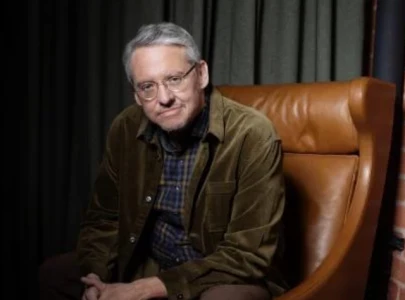
Dissenting views, which for decades were screened out of the government-linked mainstream media, are now everywhere, including the blogosphere and mobile SMS messages, making repression extremely difficult. One veteran reporter with one of the country's leading newspapers said that for most of his career it was virtually impossible to write about the opposition or any issues deemed off-limits by authorities. "But today, government MPs are forced to engage and debate their counterparts across the aisle in social media like Twitter and Facebook, allowing us to report on the opposition and avoid much censorship," he says. "Where previously we had to accept at face value a minister's version of events or policies, today their disgruntled aides and opponents are already tweeting or leaking details on Facebook, giving us uncensored access."
"Although the restrictions and controls are still in place, it's become much harder to censor what the opposition or rights groups say in the media," says the journalist who, due to the sensitivity of the issue, declined to be named.
Malaysia was ranked 131st out of 175 countries in the 2009 Reporters Without Borders (RSF) press freedom index, because of its tight controls on print and broadcast media. The watchdog says Malaysia prevents journalists from properly covering sensitive subjects such as corruption or human rights abuses, using a publishing permit system which allows it to shut down media outlets at will. After decades of such policies, self-censorship became rife and political leaders hardly even needed to make the much-feared phone call to the newsroom. But the seeds of change were sown in 1996 when the government pledged not to censor online content as part of a campaign to promote its information technology sector. Despite occasional raids, bans and government criticism, the web and online media remain relatively free.
Today, Facebook fan pages highlighting political rallies and civil society forums, as well as Twitter exchanges with lawmakers, have reshaped the reporting landscape. "All our reporters have BlackBerrys and use that to follow these tweets. The social media has changed the way journalists work in fundamental ways," says Premesh Chandran, the founder of pioneer online news portal Malaysiakini.
Chandran says the new immediacy hampers government attempts to "spin" or control a story as journalists get real-time reaction from the opposition and experts and use it to seek an immediate response from officials. With the advent of Twitter, politicians from both sides of the aisle freely disseminate their views, so much so that legislators have been known to take debates out of the chamber and continue them in the Twitterverse.
Social media also have a knack of eliciting more candid commentary than politicians would usually choose to put in a regular press release. That phenomenon was on display this week when Khairy Jamaluddin, influential leader of the ruling party's youth wing, gave a quick response to a government decision not to drop a ban on students joining political parties.
"Cabinet decision not allowing university students to be involved in political parties is gutless and indicates outdated thinking," he said in a much-discussed tweet. Opposition politician Nik Nazmi Nik Ahmad, 28, tweets daily on his constituency work, lists all his public events on Facebook and even carries out interviews and dialogues online. "Social media definitely gives the opposition and alternative voices a space to express our views without censorship," he says. "The limitation is that we are restricted to 140 characters on Twitter so we can't really flesh out many of the arguments and positions but it at least allows people and the media to read and understand our perspective."
Malaysians have flocked to the Internet for news and views, a phenomenon credited with the opposition's stunning performance in 2008 polls when the government lost its two-thirds parliamentary majority for the first time. RSF's regional correspondent Patrice Victor says the Malaysian experience could be replicated in other countries as they develop a potent combination of repressive governments and reasonable Internet access. "We are seeing social media free the way journalists report in this region and the trend in Malaysia can also be seen happening in Singapore, Thailand and Burma (Myanmar)," he says. "Governments here are slowly realising that it is very hard to censor and restrict information once people have access to the net and this trend of using social media to break down censorship looks like it is here to stay."

1730959638-0/trump-(19)1730959638-0-165x106.webp)
1730960553-0/Imane-Khelif-(1)1730960553-0-165x106.webp)












COMMENTS
Comments are moderated and generally will be posted if they are on-topic and not abusive.
For more information, please see our Comments FAQ